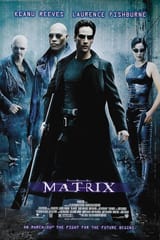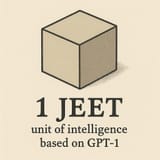Anonymous
(ID: r9sDQSWl)
 7/13/2025, 7:12:55 PM
No.510281848
>>510282734
>>510282905
>>510283286
>>510283318
>>510284290
>>510286230
>>510286708
>>510287445
>>510287873
>>510288071
>>510288076
>>510288098
>>510288295
>>510288881
>>510289584
>>510289700
7/13/2025, 7:12:55 PM
No.510281848
>>510282734
>>510282905
>>510283286
>>510283318
>>510284290
>>510286230
>>510286708
>>510287445
>>510287873
>>510288071
>>510288076
>>510288098
>>510288295
>>510288881
>>510289584
>>510289700
AGI will be treated like nukes
If AGI happens, it won’t be released into the public. The military will keep it behind closed doors and will crack down on any country that tries to develop it. It will not be used to allow everyone to return to monke and have sex all day with infinite food. It will not become the Terminator and enslave everyone. No one will even know that it exists.






